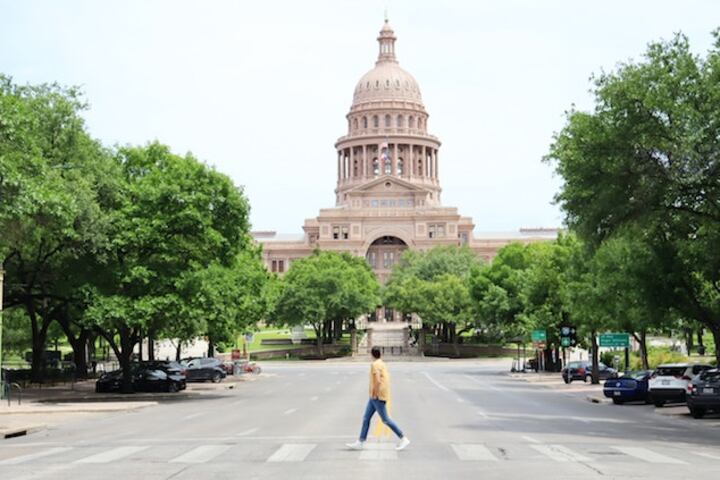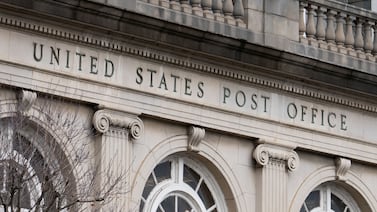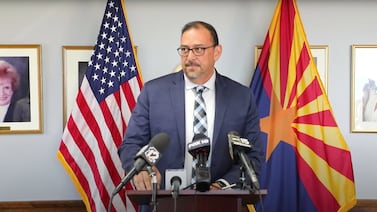This article was co-published with Texas Monthly.
Representative Gina Hinojosa packed in a hurry this morning, stuffing a bag with enough clothes for weeks away from home, just moments before she left her house in Austin. “I can’t talk right now!” the 47-year-old Democrat said, as she zipped up her suitcase. By the afternoon, she sat on a chartered jet packed with dozens of her fellow Texas Democrats, ready to fly to Washington, D.C., in their latest ploy to block Republicans from passing new restrictions on voting.
Just 42 days before, Hinojosa had been one of dozens of Democrats to “break quorum” by absenting themselves from the Capitol at the end of the regular legislative session, denying Governor Greg Abbott and the Republican-controlled Legislature the ability to pass Senate Bill 7, legislation that would have further restricted voting in a state where access to the ballot box is already among the tightest in the nation. Now, five days into the Abbott-called special session of the legislature, the House Democrats were jetting off to D.C. to deny a vote on SB 7’s successor.
“Can we talk once the plane takes off?!” she shouted to those around her while I was on the line. Overhead announcements interrupted the call, and Hinojosa took a deep breath. “Logistics and organizing have taken every waking moment. I don’t even know what’s in my suitcase right now.”
The Democrats understand that the legislative showdown is about more than an election bill in Texas. Whether they like it or not, the special session debate has become a symbol for the battle for the future of voting rights in America, and they’ve been cast as the defenders of that right. But given their weak political position in the state, it’s not a battle they can wage in the traditional way. Hence, their decision to skip town: fighting by fleeing.
The destination for their exodus—Washington, D.C.—says a lot about where they see the main conflict over voting rights playing out. The walkout, which nearly sixty Democrats are participating in, had been discussed in hushed whispers at the Capitol for several days, but not even Hinojosa knew exactly when it would happen. After grueling hearings in both the Senate and the House, where public testimony went through the night, Republicans in the House and the Senate voted to advance each chamber’s version of the bill, despite what Hinojosa called “overwhelming opposition” from members of the public who waited hours to testify overnight. “We decided it was time to go, our voices were not being heard, and our constituents’ voices were not being heard,” said Hinojosa. “We can prevail on this in Washington.”
She knows that this fight isn’t over — Abbott can call as many special sessions as he likes and if, or when, a quorum is restored, passage is all but assured. So what do she and her colleagues hope to accomplish? “We are going to D.C. to plead with members of Congress to pass voting rights legislation. That’s the only way to ultimately prevail in Texas—we can only hold the line for so long,” she said.
House Speaker Dade Phelan, Lieutenant Governor Dan Patrick, and Abbott did not respond to requests for interviews by press time. But many Republicans are slamming the Democrats for leaving the state. “As they fly across the country on cushy private planes, they leave undone issues that can help their districts and our state,” said Abbott in a press release. In a written statement, Phelan said the House would use “all available resources” to restore a quorum. “I expect all Members to be present in our Capitol in order to immediately get to work on these issues.”
Though Phelan didn’t say so explicitly, he has the power under Texas law to call for a vote that allows him to lock the doors to the House floor and have state troopers round up missing representatives to restore a quorum. Hinojosa said that because the troopers have no jurisdiction outside of Texas the Democratic legislators “will stay in D.C. until our job is done.”
The voting-restriction bill, as reintroduced by Republicans in the House and the Senate, removed some of the more draconian provisions that emerged in the final hours of the regular session. It excised, for example, a provision that would have limited Sunday voting (widely used by Black voters) and language that would have made it easier for judges to overturn the results of an election.
Royce West, a Democratic state senator from Dallas, said that while the current version of the bill is “better” than the previous one, it still needlessly restricts the franchise. “They are saying it’s about security and accessibility, but they aren’t trying to make voting more accessible,” he said. Instead, he argues, the legislation amounts to a thinly veiled attempt at reducing turnout, especially in urban areas and minority communities that tend to vote for Democrats.
Former El Paso congressman Beto O’Rourke said Saturday that he hoped a walkout would ramp up pressure on Congress. “[They should] camp out on the steps of the U.S. Senate, so that every time one of those senators walks by they have to see a Texas state legislator who can’t even go home to their kids because they were willing to sacrifice for democracy, and to say to that senator, ‘You have the power to make this right. Will you use it?’” said O’Rourke, who campaigned unsuccessfully for U.S. Senate and for president and now runs a political action committee focused on voting issues.
O’Rourke said that his frustration with D.C. politicians grew as he watched Texans turn out to testify against the bill in Austin amid foul weather at 7 a.m. on a Saturday. “They made it through rain on a Saturday morning and waited for 11 hours to testify to get their 2 minutes to say their piece. They’re not cynical,” he said. “They are not throwing in the towel. They are not saying, ‘Well, shit, the traditions of the Senate don’t allow us to do X, Y, or Z.”
Outnumbered in the Legislature for almost two decades, Texas Democrats have occasionally resorted to breaking quorum to combat measures they view as existential threats to their power and democratic governance. In 2003, for example, more than fifty Democrats fled to New Mexico and Oklahoma to block a redistricting proposal engineered by former U.S. House Majority Leader Tom DeLay. The most recent quorum break came in late May, in the waning hours of the regular legislative session, when House Democrats walked out of the lower chamber to deny the Republican majority the 101 members who must be in attendance before a vote can be held. Then, members simply had to leave the building, rather than the state. Republican Speaker Dade Phelan had addressed the Democratic caucus that night, telling them that he “understood” if they needed to walk out, and that he would not send state troopers to collect them.
The 2003 walkout was deeply unpopular in the state. State Senate Republicans distributed playing cards with Democratic lawmakers displayed in the manner of Iraqi war criminals, with “Most Wanted Democrats” emblazoned on the top. The Washington Post described the representatives as “holed up just over the border in Oklahoma, where they were staying in a Holiday Inn and holding court at Denny’s.”
The Republicans then needed only one Democrat to defect, and they found their man in Houston Democrat Sen. John Whitmire, who returned from Oklahoma and to the floor. Democrats had no exit strategy, he explained to reporters at the time. With a quorum restored, the Republican redistricting plan passed. This time, public sentiment is far different. News of the walkout was met with praise from activists and celebrities on Twitter on Monday, though it’s not clear how the Texas electorate will receive the news. Hinojosa said she expects the support to continue. But public sentiment doesn’t make walking out on the job easier. “Leaving is really hard to do,” said Hinojosa, whose elementary-school-aged son snapped cell-phone photos of her while we talked. “Most members have to leave families behind for a long time, and then people have to get back to their full-time work so it’s hard to talk about having to seek refuge somewhere for weeks at a time.”
But Hinojosa is hopeful that the Texas Democrats’ dramatic departure to D.C. will force their party’s members in Congress. After their walkout during the regular session, a group of Texas legislators — including Hinojosa — flew to D.C. to meet with Vice President Kamala Harris and Democratic legislators, including Joe Manchin, the West Virginia senator who opposes reforming the filibuster, thereby making it impossible to pass legislation that can’t win the support of at least 10 Republican Senator . In the meetings, most national Democrats implored them to keep the pressure on, and to help them garner support for federal voting laws with their constituents and Democrats in other states.
Hinojosa said that Harris told them the eyes of the country were on them. “She said, ‘Look you need to understand you are now national leaders on voting rights – I know you are tired, but we need you to keep fighting,’” said Hinojosa. “And we took it to heart.” Hinojosa took her advocacy to Manchin’s home state, attending a voting rights rally last month in West Virginia. Now that she’s done her part, she says it’s time for her national counterparts to keep up their end of the bargain. “We can win on this in Washington. This is a foundational right from which all other rights come, so we won’t back down,” she said.
But others are skeptical about how this will all play out. Almost 20 years after bringing the 2003 quorum-break to an end, Whitmire is still in the Senate and possibly running for mayor of Houston. While today’s walkout included only House members, there is internal speculation among Democrats that the Senate may follow. In a call on Monday afternoon, Whitmire said he is not aware of firm plans for senators to leave. He said he would want a “definitive answer” on an “exit strategy” before he made his own choice to leave the state.
“I think you have to weigh all of your options,” he said, “and certainly I am keeping mine open.”






